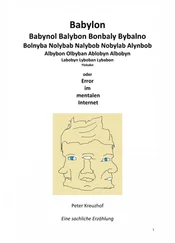Hurensson found out about the existence of this nation only because of its ridiculously cheap prostitutes, willing to put up with anything that doesn’t leave visible traces. Only then did he find out from the residents of this nation about the apparently famous artists, astronomers, and inventors whom he’d never heard of before. But so far Hurensson has only been able to meet cheap whores, black market hustlers, arrogant waiters and taxi drivers, lazy room-maids and venal policemen. However, Hurensson does not condemn anyone outright. He believes the milieu in which he circulates as a bisexual tourist has shaped his opinion. He has no doubt that this nation is composed not merely of parasites and fools, but also of honest and educated working people. The point is that Hurensson has never yet met such people, nor even found a trace of their existence. He needn’t give a toss. He doesn’t aim to do sociological research while deep among these people. He is a serious employee of a top Swedish furniture company; he is forty, and a follower of the great Marquis de Sade. He is a self-indulgent libertine. He doesn’t mind spending a whole week’s income coming over here to have fun with pretty Slovak prostitutes who have no taboos and who are stunningly cheap compared to their colleagues in Bangkok, where Hurensson used to go.
But this time Hurensson has come with a different aim. He’s firmly decided to induce the handsome young man, whom he promised a video camera, that the Hurensson way of life is one of freedom and pleasure. As an older special friend he will gladly guide the young man through an unknown and perhaps thorny, but eventually dizzily sweet garden of enchanting passion.
During his involuntary stay at a clinic for sexually transmitted diseases in Uppsala he never stopped thinking of his cherubic Slovak, and seducing him became the first thing he’d do when he was cured. Hurensson considered the splendid camera a sufficient means of enticing the young man and guaranteeing them both a pleasurable weekend in a suite at the Hotel Ambassador.
Hurensson does not have to go looking for Urban, who’s come of his own accord. He rushed out of the department store where Piggybank’s panting phone call caught up with him.
“Hi, how are you doing?” Hurensson calls out in his Swede’s English, getting up and giving Urban a friendly hug.
“Thanks,” says Urban and adds reproachfully. “Long time no see.”
“I ain’t got time,” says Hurensson.
“Have you got the camera?” Urban asks.
Hurensson smiles. “Of course,” he says.
“The same type I wanted?” Urban wonders…
“Not exactly, but much better than this.”
“Can I take a look?”
“Sure, in my hotel room,” Hurensson suggests. “Here’s an owner’s manual, here you are.”
“Thanks,” Urban answers and leafs thoughtfully through the manual.
“Do you like the camera?” Hurensson asks impatiently.
“Oh, sure!” says Urban. “But it must have been very expensive. I wanted the other type because it was much cheaper than this one. How much do I owe to you now?”
“Don’t talk of money,” Hurensson suggests and grabs Urban’s hand. “Let’s talk about ourselves!”
Urban’s face flushes red.
“Actually, I do not understand,” he admits and frees his hand from the Swede’s big, dry, fatherly hand.
Hurensson smiles patiently. “I mean that you can have this camera if you want,” he explains to Urban. “You don’t have to pay. It’s up to you. C’mon, let’s go to my hotel room. You should go with me if you want to see the camera. I think we can go much closer to each other, can’t we?”
Urban knows only too well that he doesn’t have enough money for this camera. It cost almost twice as much as the one he ordered. On the other hand, he can’t tell the Swede that he doesn’t want it because he wanted the cheaper model. The picture of the camera on the manual is seductive.
“Yeah, let’s go upstairs,” he sighs.
He’s got to have that camera, no matter what.
* * *
At first the manager considered fixing the broken heating himself. But he’s afraid Rácz might find out. He’d rather freeze.
Ďula sometimes stops by the manager’s office, but not out of pity. He checks everything out and then informs Rácz.
“Tell me, Ďula,” the manager asks him one day, “what would happen if I fixed the radiator myself?”
“I’d have to tell Rácz,” says Ďula, looking straight at the manager’s pale face.
“But why?” the manager asks full of bitter aggrieved emotion. “Did I pay you badly? Were we on bad terms? Aren’t we friends any more?”
Ďula shakes his head. “You don’t understand. You’re very stupid. Rácz is a personality. At last, a strong personality in this hotel! And you? A few months ago you were the big boss here and where are you now? Just look at yourself! Your father-in-law won’t help you; he’s got enough worries of his own. Read the papers! I’ve got to go. I’ll tell Rácz what we talked about.”
A little while later Ďula drops in for a word. He stands in the doorway. “Rácz wants you to know,” he tells the manager, “that if you try to screw him he will come up here and make your life hell. You see, everybody treats you like a piece of rubbish,” he adds with contempt and malice. “You’ve got only one way out: beg him to forgive you.”
The manager sits up with a jerk.
“Rácz wants you to come over to him in the lobby on your hands and knees and beg for his forgiveness in front of everyone.”
“Never!” the manager says in anger. “Apologize politely, admit a mistake was made — yes. But that kind of a circus show…”
“But you’re a circus act, anyway!” Ďula says angrily. “How do you think people see you?”
The manager angrily puts his fat fingers in his ears. He curls his upper lip.
Ďula leaves.
The manager is on the lookout in the doorway. When the lawyer passes by, he addresses him in a friendly manner. He believes the lawyer will help him. For years the manager has covered up the lawyer’s deals. But the lawyer is fearful.
“Are you out of your mind?” he bursts out. “Do you think I want to end up like you? Kindly don’t talk to me. After a while, when the air’s clear, I may drop by. That’s all I can do for you at the moment. We’ll see what happens in the future.” The lawyer looks around. “Well, clear off,” he tells the manager impatiently. “We might be seen together and I’d have problems I don’t need.”
The lawyer hurries off. Yes, his prediction has come true. The manager’s gone to pieces. In effect, the lawyer runs the hotel now. He should be made the real manager. That would be something! It would become the lawyer’s gold mine. He knows so many tricks with the paper-work that he’d be a millionaire in a year. Yes, the lawyer realises, the time has come to organize an election for the manager’s job. That would be the lawyer’s great chance. Were it not for Rácz. The lawyer is apprehensive. What if Rácz has the same ambition? The lawyer calls for an election, and the staff elects Rácz instead! Or if not Rácz, someone else who’ll run things on Rácz’s behalf. No, Rácz will have to be rendered harmless, the lawyer decides. Rácz has gone too far.
The manager is sitting in the tent in his office and reflects. He can’t fire Rácz. He can’t do anything. The manager is lost. If his wife and her lover don’t take pity on him, by spring he’ll freeze to death — either freeze, or go mad. He can’t last much longer.
* * *
Rácz sometimes comes to check on the gypsies locked up in the boiler-room. They have resigned themselves to their fate. They don’t try to escape any more; it’s impossible. The bars are solid. When they see Rácz, they work like mad. They’re afraid of him. They are strong only in a mob. As individuals, they are against violence. They fear physical pain. The pump wheels turn round and round. Rácz checks to see that the bearings don’t overheat. He checks the pressure and the temperature. If anything is out of order, the gypsies go without food for a day. After his inspection, Rácz calmly leaves. Ďula shuts the door and slowly turns all the complicated locks.
Читать дальше












